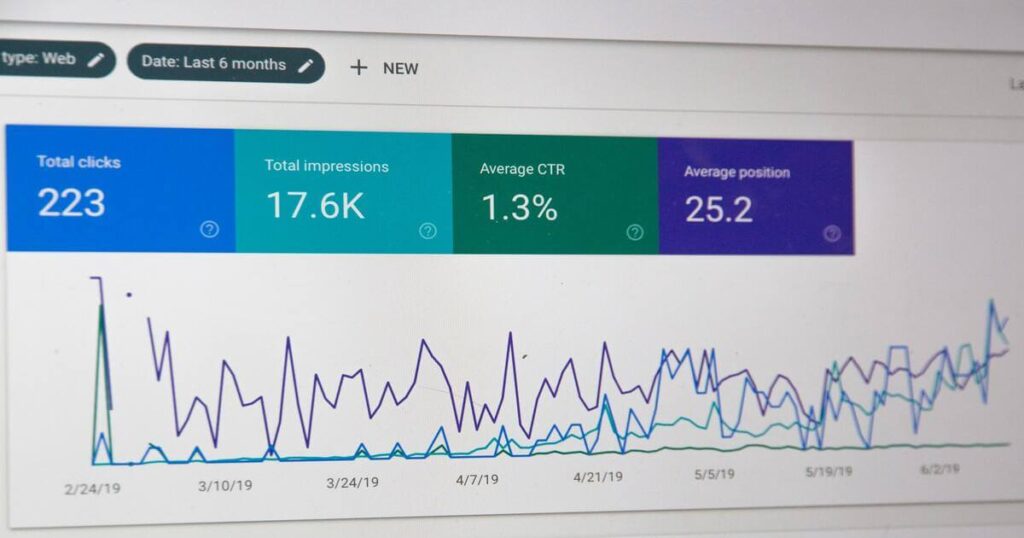Would you like to write articles for blogs and don't know where to start? Find out how to solve the problem easily and effectively.
The blog is one of the best tools at our disposal to improve the organic visibility of our business.
To achieve the intended results, we must know how to write articles for blogs that are really effective and that are positioned at the top of the results of existing search engines, such as Google, Bing and Yahoo.
Since quality content is essential for success, not every article can be positioned on a level above the others. To write an appropriate article for your blog, you should consider the following aspects:
-10% inspiration;
-10% research;
-80% SEO knowledge.
Recalling the writing process for articles may seem daunting at first. However, the process is becoming easier and more automatic.
Are you ready to create articles suitable for your users? Continue reading to find out how you can use blog SEO to your business.
How to Write Articles for Blogs? Tips for Doing It Well:
1) Brainstorm ideas with a list of contents.
Before creating your article, you should prioritize brainstorming ideas about the topics to be covered, in order to choose the most convenient one. Therefore, you can ask a series of questions to help you in the process, which are:
-What are the problems to be solved?
-What is my target audience?
-What are the subjects covered, within my niche, that my competitors are writing about?
Each of these questions will generate a number of different ideas to use within your blog.
2) Choose appropriate keywords with SEO tools.
Keyword research is the process in which we use appropriate SEO tools, as is the example of Semrush or from Google Keyword Planner🇧🇷 In this way, we can visualize how often and to what extent people perform their searches on specific terms.
Using these tools you may find that “cheap baby clothes” is searched for the most, as opposed to “quality baby clothes”.
Also, you should bear in mind that if you write content that is not related to your business or other content on your blog, no matter how favorable and timely it may be, you will not achieve the intended success and, therefore, you will not be able to obtain the desired results.
3) Conduct research on the topic of your content and always choose the user.
Having chosen the theme, it must begin with its correct investigation. One of the best ways to investigate content ideas is to look at other blogs in your industry, as you can get ideas and inspiration from previously unthought of topics. On the other hand, you should bear in mind that, at the time of writing, it is mandatory to address your target audience, not the search engines. Humans are more likely to engage with your content and search engines are more likely to use them as a ranking factor. This insofar as we have to make the content as readable and attractive as possible.
4) Optimize on SEO.
Once you have your article in mind, you should start the writing process by optimizing it for search engines.
-Create an appropriate title and subtitles.
First, what you should do is create the title of the topics that will be addressed, and these should contain your keyword. On the other hand, it is important to use subtitles throughout the article, as they are a way of communicating relevant content to search engines.
-Keyword density.
Your keyword must be present throughout the article, however, you should not abuse it and place it in places where it is not consistent.
-Keywords in image descriptions.
If images are going to be included, you must add the keyword in the description. This way, you get more possibilities to rank within the image results for your keyword.
-Add internal and external links.
External links should always be to authoritative websites related to the content of your article. If you don't have external links, it may be difficult for Google to theme-map the content. On the other hand, internal links can be used in order for the user to be able to navigate within your website. Also, both internal and external links should only be implemented if they are relevant.
-SEO on-page e off-page.
The on-page SEO is the content and formatting of your blog, such as the use of keywords, titles, links, among other actions. On the other hand, off-page SEO focuses on optimization to carry out actions external to the website aimed at achieving optimal positioning results. Since, the greater the number of reference sites mentioning your article, the better your result will be.
-The body text must be easily readable.
You should use short paragraphs and words that are not complicated, so that any user can understand your text.
- Article review.
It is essential to reread your article a few times or even ask someone to read it, as other people can give ideas and contribute to your article being ideal. Also, it is important to highlight that we must correct any mistakes before being published.
After reading our article on “How to Write Articles for Blogs? Tips for Doing It Well” and having informed and knowing better about the topic, you can start writing your own article suitable for your blog.
Bear in mind that these are not the only pieces of advice out there that you can implement in the future. Since, we are the ones who create our own style and identity. However, we must always bear in mind that no matter how creative and original our content may be, if we are not able to optimize it for SEO, it is clear that we will not achieve the best results.
Creating suitable SEO-optimized blog articles, while not complicated, requires knowledge, time and interest in the area, Be-Wide Online Solutions Completely has a great service for your business, with experts in the areas of SEO and much more.
In case of doubt, do not hesitate to contact us, we will offer the best service within our reach.




